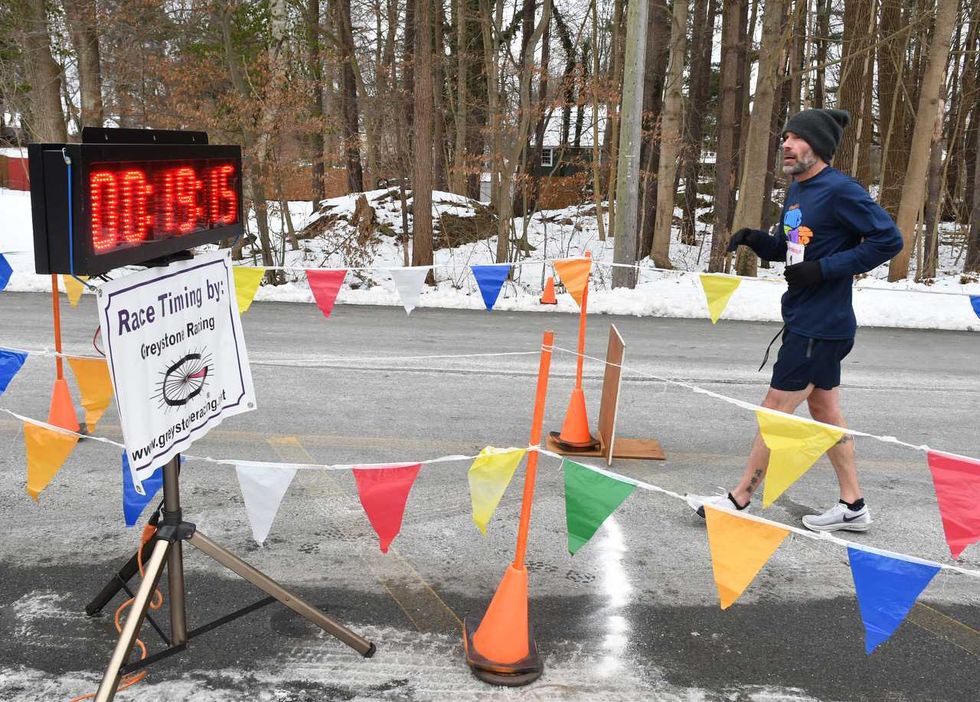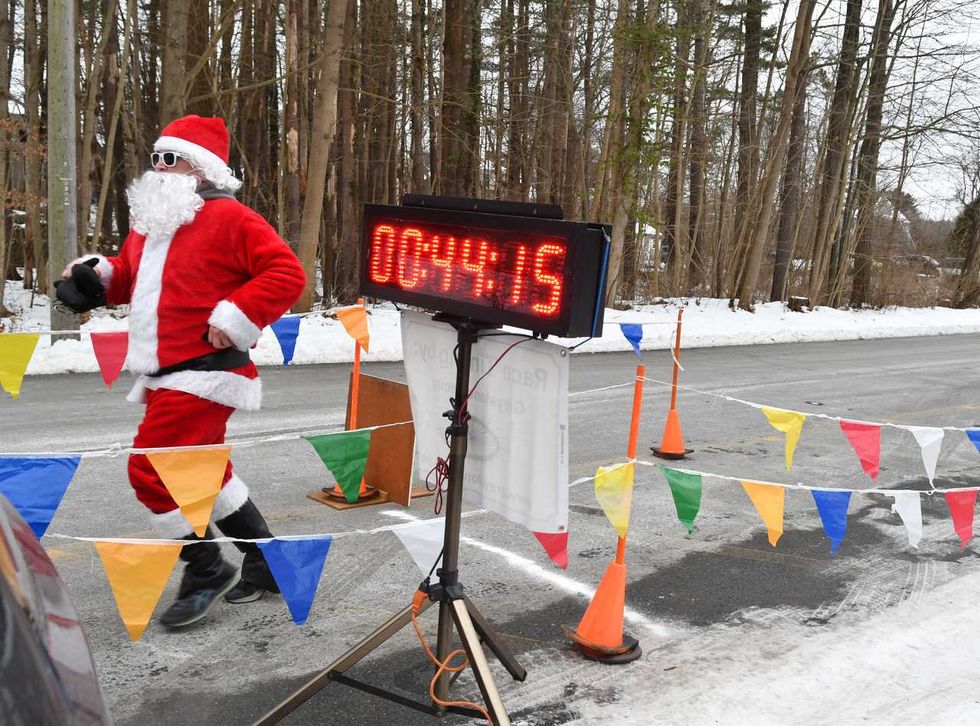Old Crow Medicine Show coming to The Mahaiwe

Old Crow Medicine Show will perform their high-energy brand of Americana at The Mahaiwe on April 25.
Brooke Stevens

Old Crow Medicine Show will perform their high-energy brand of Americana at The Mahaiwe on April 25.
Old Crow Medicine Show has been making merry music since 1998. While students at Ithaca College in upstate New York, the band recorded, toured, and discovered gold in a discarded musical idea.
As legend has it, co-founder Chris Fuqua gave lead singer and fiddle player Ketch Secor a bootleg of a Bob Dylan song sketch. Secor took the chorus and added verses with themes of traveling that reflected his homesickness for the south. The resulting “Wagon Wheel” became the band’s biggest hit, going gold and eventually platinum in 2013.
When asked why the song continues to resonate to this day, mandolin player and multi-instrumentalist Cory Younts said, “It’s simple, easy to learn, and pleasing to the ear. It’s everyone’s favorite campfire song. Ketch knew it was gonna be a big hit when he wrote it, and that it was gonna go for miles and miles.”
The band got a big break while busking outside of a pharmacy in Boone, North Carolina in 2000 when they were discovered by legendary blind bluegrass musician Doc Watson who invited them to perform at his annual Merlefest music festival, changing their lives forever.
As a result of their performance, the band was invited to play Nashville’s Grand Ole Opry where they were embraced and mentored by Marty Stuart, who invited them to tour and open for country music legends Merle Haggard and Dolly Parton.
In 2004, they recorded their eponymous album “O.C.M.S.” produced by David Rawlings, musical partner of Gillian Welch. Younts recalls how it was the right time for the band’s brand of music.
“Old Crow was starting to make a name for themselves in Nashville around the time of the Cohen Brothers’ film ‘Oh Brother Where Art Thou?’ I was a fan and would go to as many shows as I could. Gil and Dave would be there too. They’re wonderful people. They have Woodland Studios in Nashville.”
In December 2024, the band celebrated 25 years of the album with a performance on NPR’s Tiny Desk Concert series. Today, they are one of the bigger Americana acts, and on reflection, Younts believes they helped start the genre.
“I remember when everybody thought we were just making country music. I think we’re one of the first bands to start that whole sound and category (of Americana),” he said.
Old Crow Medicine Show will bring their unique brand of Americana to the Berkshires in late April. Audiences can expect an energetic and highly entertaining show.
“We’re very high energy with a lot of humor. All of us rotate instruments throughout the night; everybody plays probably six instruments. It’s entertaining, comical, good old ruckus busking music,” Younts said.
Come see for yourself at the Mahaiwe Theater in Great Barrington, Massachusetts on Friday, April 25.
Housatonic Valley Regional High School, where the price of school lunch will increase to $4.00 beginning Jan. 5.
FALLS VILLAGE -- School lunch prices will increase at select schools in Regional School District No. 1 beginning Jan. 5, 2026, following a deficit in the district’s food service account and rising food costs tied to federal meal compliance requirements.
District officials announced the changes in a letter to families dated Monday, Dec. 15, signed by Superintendent Melony Brady-Shanley and Business Manager Samuel J. Herrick
Under the new pricing, lunches at Lee H. Kellogg School and Cornwall Consolidated School will increase by 25 cents to $3.75, while lunches at Housatonic Valley Regional High School will rise by 50 cents to $4.00.
According to the district, the food service program depends on revenue from lunch sales as well as federal reimbursement. Increased food costs and compliance requirements contributed to the shortfall during the 2024–2025 fiscal year.
School lunch prices have remained unchanged since the 2019–2020 school year, prior to the COVID-19 pandemic. In the years that followed, the district used COVID-19 relief funds to allow students to receive lunches at no cost.
Families who believe they may qualify for free or reduced-price lunch may apply at any time during the school year. Applications are available online for Housatonic Valley Regional High School, Lee H. Kellogg School and Cornwall Consolidated School.
The lunch price increase applies only to these three District No. 1 schools, as Housatonic Valley Regional High School oversees the food service programs at Lee H. Kellogg School and Cornwall Consolidated School. Other schools in the district operate independent food service programs and are not affected.
Runners line up at the starting line alongside Santa before the start of the 5th Annual North Canaan Santa Chase 5K on Saturday, Dec. 13.
NORTH CANAAN — Forty-eight runners braved frigid temperatures to participate in the 5th Annual North Canaan Santa Chase 5K Road Race on Saturday, Dec. 13.
Michael Mills, 45, of Goshen, led the pack with a time of 19 minutes, 15-seconds, averaging a 6:12-per-mile pace. Mills won the race for the third time and said he stays in shape by running with his daughter, a freshman at Lakeview High School in Litchfield.

Don Green, 64, of Red Hook, New York, was second among male runners with a time of 21:17 and a 6:52-per-mile pace. Becky Wilkinson, 47, of Southfield, Massachusetts, was the first woman to cross the finish line with a time of 22:16, averaging a 7:11-per-mile pace. Wilkinson finished fourth overall.
Margaret Banker, 52, of Lakeville, finished second among women runners with a time of 23:59 and a 7:44-per-mile pace.
Runners came from all over Connecticut, Massachusetts and New York. One runner listed home as London, England. Many were members of the Run 169 Towns Society, a group that is dedicated to completing races in every one of Connecticut’s 169 towns. Elizabeth Smith, 32, of Manchester, a member of Run 169, said this was her 162nd town.
“I started 10 years ago,” Smith said. Her husband, Daniel, 33, has run races in 73 Connecticut towns, now including North Canaan. He was eager to know where to get a good cup of coffee after the race.
Santa, who got a head start on the group of runners but finished next to last with a time of 44:14, has been a feature in the North Canaan race since it started five years ago.
The 5K proceeds from a start in front of the North Canaan Elementary School on Pease Street to course around the Town Hall parking lot, up West Main Street past the transfer station to the state line and back. Cheryl Ambrosi, 45, of Danbury, was the last to cross the finish line with her dog Benji. “It was so much fun,” she said as she ended, even though she didn’t catch Santa.

The Torrington Transfer Station, where the Northwest Resource Recovery Authority plans to expand operations using a $350,000 state grant.
TORRINGTON — The Northwest Resource Recovery Authority, a public entity formed this year to preserve municipal control over trash and recycling services in northwest Connecticut, has been awarded $350,000 in grant funds to develop and expand its operations.
The funding comes from the Department of Energy and Environmental Protection via its Sustainable Materials Management grant program. It is intended to help the NRRA establish operations at the Torrington Transfer Station as well as support regional education, transportation, hauler registration and partnerships with other authorities.
Founded by the City of Torrington in May 2025, the NRRA was established to oversee regional municipal solid waste management. Its creation followed a $3.25 million offer by USA Waste & Recycling to purchase the Torrington Transfer Station — a sale that would have privatized trash services in the region.
The proposed sale was initially approved by the MIRA Dissolution Authority, the entity responsible for dissolving the state’s former Materials Innovation and Recycling Authority, which owned the Transfer Station at the time. Before the transaction could close, the state intervened and directed that the facility’s operating permit be assigned to the NRRA to preserve a publicly controlled alternative.
MIRA has since dissolved, and the Transfer Station is currently operated by the state Department of Administrative Services. Many towns in northwest Connecticut have expressed interest in joining the NRRA. As of December, Torrington and Goshen were the only two municipalities in the authority.
At the Dec. 11 meeting of the Northwest Hills Council of Governments (COG) — a regional planning body representing 21 municipalities in northwest Connecticut — Director of Community and Economic Development Rista Malanca encouraged more towns to sign on.
“We need towns to join the Northwest Resource Recovery Authority to show your support, show this is what you want to do,” Malanca said.
Salisbury First Selectman Curtis Rand said his municipality is planning a town meeting in January to vote on a resolution to join the NRRA. Cornwall’s Board of Selectmen recently discussed scheduling a town meeting in the winter for the same purpose. Sharon, Falls Village and North Canaan have also expressed continued interest in pursuing a public option.
Kent is the northernmost member of the Housatonic Resource Recovery Authority, a regional solid waste authority representing 14 municipalities stretching south to Ridgefield. COG towns expressed interest in joining HRRA in 2024, but they were denied and set out to develop the NRRA.
“We also have been having conversations with the Capital Region Council of Governments and the Naugatuck Valley Council of Governments to think about how we can use existing resources, maybe some of these grant funds, to bring in shared resources or shared staffing that will help with some of the recycling coordinating efforts,” Malanca said.
With grant funds secured, NRRA aims to grow to a point that it can take over operations at Torrington Transfer Station to serve as a regional hauling hub. What happens to the trash after that has yet to be determined. Currently, it is being shipped to a landfill out of state. The existing municipal refuse hauling contracts that were established with the state expire in 2027.
The Salisbury Winter Sports Association (SWSA) will host its annual Junior Jump Camp, a two-day introduction to ski jumping, on Saturday and Sunday, Dec. 27 and 28, from 9 a.m. to 2 p.m. at Satre Hill in Salisbury.
The camp is open to children ages 7 and up and focuses on teaching the basics of ski jumping, with an emphasis on safety, balance and control, using SWSA’s smallest hill. No prior experience is required.
The cost is $50 per child and includes instruction and lunch on both days. For more information or to register, visit www.skireg.com/swsa-camp or email info@jumpfest.org